Principal Investigators (A-Z)
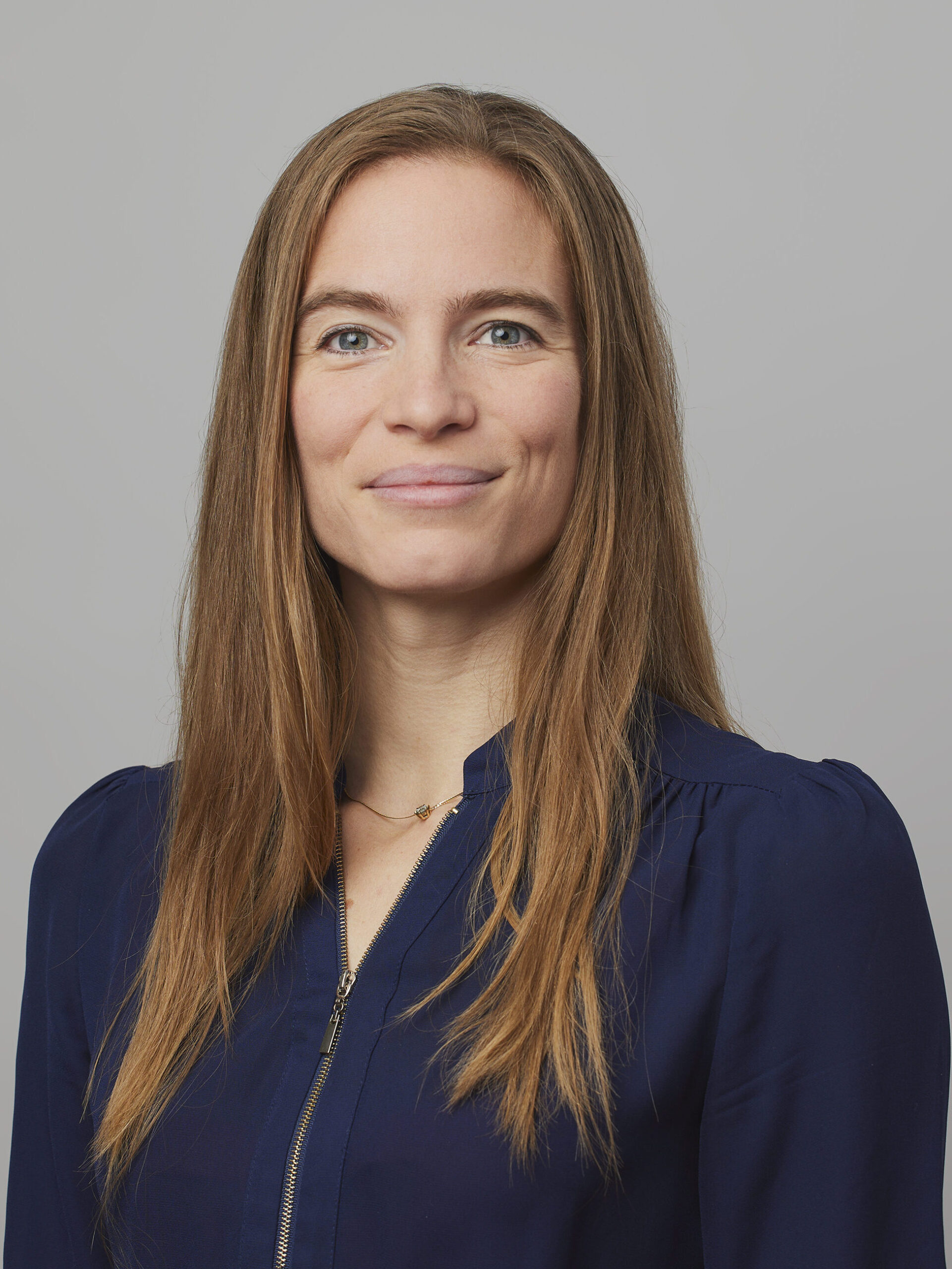
Prof. Dr. Bégon-Lours, Laura
Engineer from the ESPCI ParisTech and Doctor in Physics from the PSL university (UPMC) in Paris, Laura Bégon-Lours is Assistant Professor at ETH Zurich, in the Department of Information Technology and Electrical Engineering. Her research focuses on the development and application of nanoscale components that can be used as synapses in artificial neural networks. Her goal is to manufacture bio-inspired chips that work in a similar way to the human brain. In 2019 Laura Bégon-Lours won a Marie Curie Fellowship for her innovative work, and in 2023 she has also been the recipient of an SNSF Starting Grant.
She’s the “Neuromorphic Electronics with Oxide (NEO)” group leader, which will contribute to the ViTFOX project with the heterogeneous integration of epitaxial ferroelectric oxides, as well as the Back-End-Of-Line integration of hafnia-zirconia superlattices.
Website : https://neo.ethz.ch/

Dr. Deluca, Marco
Marco Deluca is Head of Research Unit Thin Film Technologies at Silicon Austria Labs. His background is in Materials Science, in particular on the structure-property relationships of thin films for piezoelectric, energy storage and semiconductor applications. Marco obtained his PhD in 2009 from Kyoto Institute of Technology, Japan, and in 2016 the Habilitation at the University of Leoben, Austria. He is Senior Member of the IEEE and Honorary Member of the Austrian Ceramic Society. He published more than 100 scientific papers, which were cited over 3000 times (h-index 32).
His main role in ViTFOX is the management of the SAL research activities on advanced atomic layer etching of HZO.
Website : https://silicon-austria-labs.com/en/research/competence-areas/thin-film-technologies

Dr. Dimoulas, Athanasios
Dr. Athanasios Dimoulas is Research Director at NCSR-DEMOKRITOS, Athens, Greece, founder and head of Epitaxy and Surface Science Lab of INN since 1999. Dr. Dimoulas obtained his Ph.D. from the University of Crete and FORTH in Greece in 1991 on MBE heteroepitaxial growth and characterization of GaAs and related compounds on Si and served as post doc and research associate at the University of Groningen CALTECH, University of Maryland at College Park between 1992 and 1999. He has also served as visiting scientist at IBM-Zurich in 2006-2007 and as chair of excellence at CEA Grenoble in 2016-2018. He has participated as PI in 28 EU projects including ERC AdG and PoC grants and has coordinated 8 large collaborative projects on advanced CMOS and Ferroelectric memories as well as beyond CMOS technologies based on 2D materials. He is currently involved in 4 projects on ferroelectric synapses for neuromorphic computing. Dr. Dimoulas has (co)authored 226 technical presentations in refereed journals, with h –index 47. He is included in the 2023 and 2024 Stanford list of top 2% scientists in their field based on c-score.
In ViTFOX, Dr. Dimoulas will coordinate the effort and will develop epitaxial FTJ memristor synapses on Silicon. He will collaborate with ETHZ for the heterogeneous integration of the FTJs with CMOS
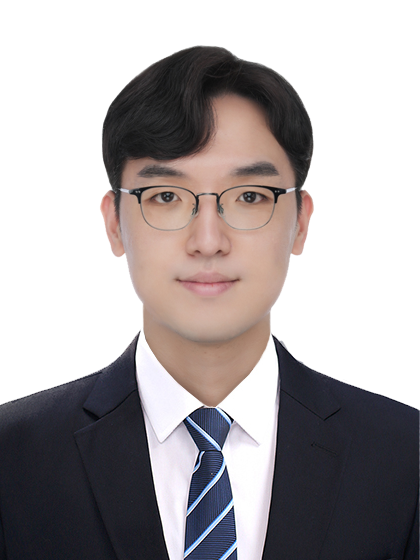
Prof. Dr. Gong, Young-Ho
Professor Young-Ho Gong received the B.S. and Ph.D. degrees from the Department of Computer Science, Korea University, in 2012 and 2018, respectively. He previously worked as a staff engineer (hardware designer) at Samsung Electronics Memory Business. His research interests include low-power memory design, 3D stacked architecture, processing-in-memory, and AI accelerator design. Prof. Gong has extensive experience in HW-SW co-optimization research, particularly in memory systems and computer architecture. He has recently published influential papers in ISLPED 2024 (Best Paper Award), HPCA 2024, and DATE 2023. He has led projects on application-aware HW-SW co-optimization for edge AI systems and contributed to the development of simulation platforms for ferroelectric PIM architecture design.
In the ViTFOX project, Prof. Gong is responsible for analyzing the characteristics of Vision Transformer (ViT) models across various hyperparameters, and optimizing ferroelectric-based PIM systems at the architecture/software-level, based on PIM-aware ViT design space exploration and designing peripheral logic for ViTFOX.
website : https://study.ssu.ac.kr/en/main/main.do
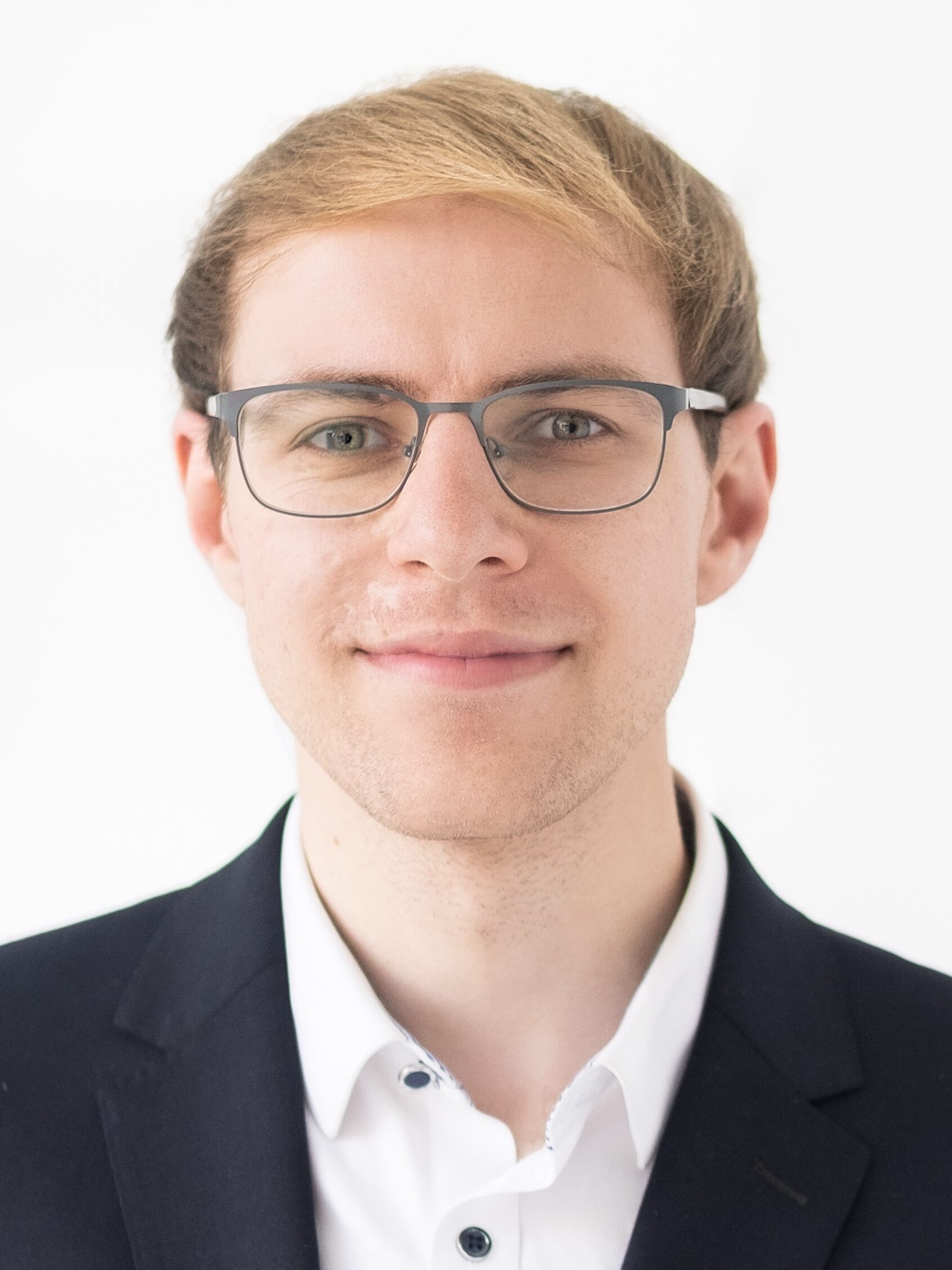
Dr. Kämpfe, Thomas
Thomas Kämpfe is professor for Neuromorphic Computing at TU Braunschweig as well as group manager for Neuromorphic Systems and department manager for Components & Systems at the Center Nanoelectronic Technologies at Fraunhofer IPMS. He earned his habilitation in Electrical Engineering in 2022 and his Ph.D. in Physics in 2016, both from TU Dresden. Following research scholar positions at the University of Colorado at Boulder and Stanford University, he joined the Fraunhofer Society in 2017. Dr. Kämpfe has authored over 250 peer-reviewed articles in prestigious journals and conferences such as Nature Communications, ACS Nano, IEDM, VLSI, DAC, ESSCIRC, and DATE. His research focuses on brain-inspired computing, approximation computing, and computing-in-memory. In recognition of his contributions, he was awarded the George-E-Smith Award in 2023, the Dresden Excellence Award in 2023, four HiPEAC paper awards, the Excellent Paper Award at RFIT 2022, and received a Best Paper Nominations in DATE 2021 and 2023. Dr. Kämpfe has actively contributed to various international conferences, serving as the technical program committees for events like IEDM, DAC, DRC, EDTM, ICCAD, DATE, ASP-DAC in the field of in-memory computing and NVRAM.
Website : https://www.ipms.fraunhofer.de/en.html

Prof. Dr. Kwon, Daewoong
Daewoong Kwon received Ph.D. degrees in Electrical Engineering at Seoul National University (SNU), Seoul, Korea, in 2017. He had designed nand flash memory devices from 2005 to 2014 at Samsung Electronics, Korea. He was with University of California at Berkeley, USA, in 2017, as a Post-Doctoral Fellow/research scientist and with Intel, USA, as a senior engineer in 2019. He is currently an Assistant Professor with the Department of Electric Engineering, Hanyang University, Seoul, Korea.
In ViTFOX, he serves as the Principal Investigator (PI) for the Korean-side working group. Specifically, he is responsible for designing ferroelectric devices, process integration, and operational schematics.
Website : http://electronic.hanyang.ac.kr/eng/professor/professor_view.php?idx=73&gubun=7&pNo=1
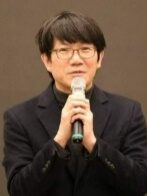
Prof.Dr. Min, Kyeong-Sik
Kyeong-Sik Min received the B.S. degree in Electronics and Computer Engineering from Korea University, Seoul, Korea, in 1991, and the M.S.E.E. and Ph. D. degrees in Electrical Engineering from Korea Advanced Institute of Science and Technology (KAIST), Daejeon, Korea, in 1993 and 1997, respectively. In 1997, he joined Hynix Semiconductor Inc., where he was engaged in the development of low-power and high-speed DRAM circuits. From 2001 to 2002, he was a research associate at University of Tokyo, Tokyo, Japan, where he designed low-leakage memories and low-leakage logic circuits. In September 2002, he joined the faculty of Kookmin University, Seoul, Korea, where he is currently a Professor in the School of Electrical Engineering. He was a visiting professor at University of California, Merced, from Aug. 2008 to July 2009. Prof. Min has served on many organizing and technical program committees such as ASSCC, ASICON, ISOCC, AICAS, ISCAS, KCS, etc.
He and his students received IDEC CAD & Design Methodology Award (2011), IDEC Chip Design Contest Award (2011), and IDEC Chip Design Contest Award (2012). In addition, he received Distinguished Service Award from Korea Semiconductor Industry Association (KSIA), Oct. 2023. He served as President of Institute of Korean Electrical and Electronics Engineers (IKEEE), 2022 and Chairperson of SoC Research Group in Institute of Electronics and Information Engineers (IEIE), 2021. He received Award of Excellence in Academy-Industry R&D Cooperation from Mayor of Seoul City, 2021 and Grand Prize in Haedong Best Paper Award, IEIE, Journal of Semiconductor Technology and Science (JSTS), 2020. And he received Distinguished Service Award from Ministry of Science and ICT of Korean Government, 2020. He has been a member of Institute of Electrical and Electronics Engineers (IEEE) since 2002. His research interests include memory, analog, and neuromorphic circuits.
Website : https://eng.kookmin.ac.kr/undergraduate/electrical#subject_tab_type

Prof. Dr. Park, Min Hyuk
Prof. Min Hyuk Park is an associate professor at the Department of Materials Science and Engineering at Seoul National University. He has significantly contributed to the field of emerging fluorite-structured ferroelectrics such as hafnia and zirconia through his early career at Seoul National University, NaMLab gGmbH, and Pusan National University. His main contributions to the ferroelectric community are 1) elucidating the mechanism behind the formation of metastable ferroelectric orthorhombic phase, 2) suggesting energy-related applications of fluorite-structure ferroelectrics such as supercapacitors, energy harvesters, and IR sensors, and 3) elucidating mechanism of ferroelectricity in fluorite-structured nanolaminates and superlattices. He published more than 120 scientific papers, which were cited over 13,000 times (h-index: 58). With his impactful contribution to the field of ferroelectrics, he got an IEEE Ferroelectrics Young Investigator Award and was selected as a POSCO Science Fellow.
His main role in ViTFOX is managing the SNU research activities to integrate high-quality (Hf,Zr)O2 ferroelectric films into 3-dimensional capacitors or tunnel junctions.
Website : https://nano.snu.ac.kr/home
Project Participants (A-Z)
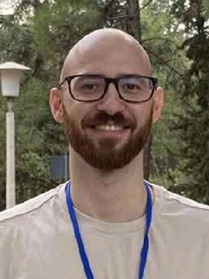
Anthoulakis, Emmanouil
Emmanouil Anthoulakis holds a Bachelor’s degree in Physics from the University of Crete (2017-2022) and a Master’s degree in “Microsystems and Nanodevices” from the National Technical University of Athens (2022-2024). His prior experience includes a Bachelor’s thesis at the Photonic Materials and Devices Laboratory of the Foundation for Research & Technology – Hellas (2021-2022), where he worked on photonic materials and devices. During his Master’s studies, he conducted research at the Electronic Nanomaterials and Devices Group of the NTUA (2023-2024), focusing on advanced nanotechnology applications.
Currently, he is continuing his research at the Epitaxy and Surface Science Lab of the National Centre of Scientific Research “Demokritos”, as part of the ViTFOX project. His work involves electrical measurements of HZO-based ferroelectrics for memristive electronic synapses.

Dr. Andrianov, Nikolai
Nikolai Andrianov is a Senior Scientist and Plasma Process Team Lead at SMF devision at Silicon Austria Labs. His background is in Plasma Physics and III-N materials. Nikolai obtained his PhD in Physics in 2018 in St. Petersburg State Polytechnic University. Before joining SAL he worked for more than 10 years in semiconductor industry in Saint-Petersburg, mostly being responsible for plasma based process development for III-V transistor technology.
His role in ViTFOX project is development of HZO Atomic Layer Etching process.

Choi, Hyojun
Hyojun Choi is a Ph.D. candidate of materials science and engineering at Seoul National University, Seoul, Korea. He received his B.S. degrees in materials science and engineering from Korea University, Seoul, Korea, in 2021. His current research interests focus on electrode engineering for DRAM & FeRAM capacitors.
His main role in ViTFOX is developing a 3D-structure highly reliable ALD-based electrode.

Flasby, Alexander
Alexander Flasby is a Ph.D. candidate in electrical engineering at ETH Zurich. He holds a bachelor’s and master’s degree in physics from ETH Zurich. Before joining the Neuromorphic Electronics with Oxides group, he worked as a fabrication engineer at the Quantum Device Lab.
In ViTFOX, his research focuses on the heterogeneous integration of epitaxial oxides with the CMOS BEOL.

Jeong, Hyun Woo
Hyun Woo Jeong is a Ph.D. candidate of materials science and engineering at Seoul National University, Seoul, Korea. He received his B.S. degrees in materials science and engineering from Seoul National University, Seoul, Korea, in 2022. His current research interests focus on discovering the mechanical and thermodynamic properties between ferroelectric and interlayer.
His main role in ViTFOX is improving the ferroelectricity of (Hf,Zr)O2 thin films by stress engineering.

Jeong, Soi
PhD scholar at the Department of Electric Engineering, Hanyang University, Seoul, Korea.

Kwon, Ki-Ryun
PhD scholar at the Department of Electric Engineering, Hanyang University, Seoul, Korea.

Kim, Jeong-Han
PhD scholar at the Department of Electric Engineering, Hanyang University, Seoul, Korea.

Kim, Se Hyun
Se Hyun Kim is a Ph.D. candidate of materials science and engineering at Seoul National University, Seoul, Korea. He received his B.S. degrees in materials science and engineering from Pusan National University, Busan, Korea, in 2020. His current research interests focus on interface engineering for FeFET applications.
His main role in ViTFOX is improving the ferroelectricity of (Hf,Zr)O2 thin films by interface and defect engineering.
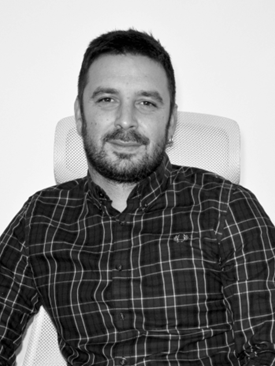
Dr. Kitsios, Stavros
Stavros Kitsios is a physicist specializing in process engineering and materials science. Since April 2024, he has held a Postdoctoral Research fellowship position at the Institute of Nanoscience and Nanotechnology (INN) of the National Centre for Scientific Research “Demokritos” in Athens, Greece. His current research is centered on ferroelectric memory devices. He earned his Ph.D. in Nanotechnology from the National Technical University of Athens (2019–2023), where his doctoral work investigated nanoelectronic devices for neuromorphic computing. Prior to his doctoral studies, he obtained his M.Sc. in Applied Physics from the Niels Bohr Institute at the University of Copenhagen (2013–2016). His expertise extends to memory technologies, with a particular focus on neuromorphic engineering and resistive random-access memories (ReRAM). He is experienced in nanofabrication techniques, materials synthesis, and device characterization.
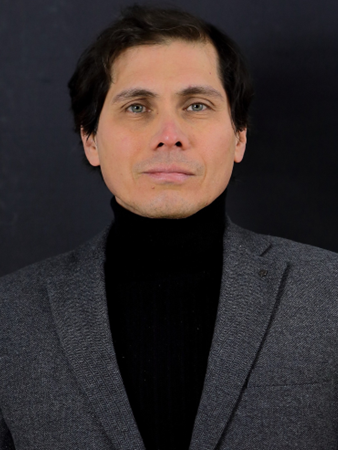
Dr. Miranda, Joaquín
Since November 2023, Joaquín Miranda is senior scientist in the Thin Film Technologies unit at SAL. He studied engineering physics and a master’s in applied physics in Mexico; he obtained from the Josef Stefan Institute in Slovenia a PhD in nanoscience and nanotechnology. Joaquín combines analytical, statistics, and computational methods such as Molecular dynamics, Density functional theory, and Monte Carlo. His area of expertise is materials science and multi-scale physics aiming to understand properties in superconductors, metals, and semiconductors for industrial applications such as MEMS, thermoelectrics, SAW sensors, and photonics.
His contribution to VitFox is to develop an atomistic model to understand the best strategies to etch efficiently HZO thin films.
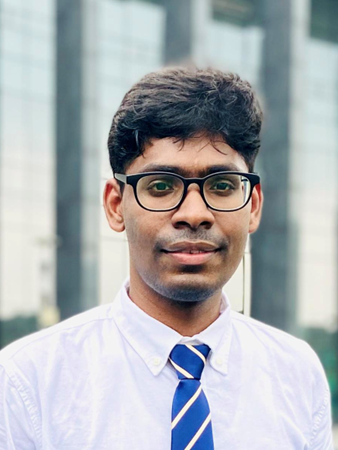
Dr. Nallagatla, Venkata Raveendra
Dr. Venkata Raveendra Nallagatla is a Scientist and Project Manager at Silicon Austria Labs GmbH (Villach, Austria). He holds a Ph.D. in Electronic Physics (2020) from Hankuk University of Foreign Studies (South Korea). Dr. Nallagatla has also undertaken postdoctoral research at Forschungszentrum Jülich (Germany) and the Materials Center Leoben (Austria), specializing in thin film technologies with expertise in piezoelectric/ferroelectric oxides and nitrides, as well as optical layers. With over 10 years of experience across academic and industrial R&D, Dr. Nallagatla has developed significant expertise in electrical characterization, failure analysis, and device reliability for advanced materials and devices, including neuromorphic devices, PiezoMEMS, and photonics.
As part of the ViTFOX project, Dr. Nallagatla is coordinating activities related to Atomic Layer Etching (ALE), Density Functional Theory (DFT), and Molecular Dynamics (MD) simulations at Silicon Austria Labs, contributing to innovative advancements in ultra-thin ferroelectric devices

Park, Geun Hyeong
Geun Hyeong Park is a Ph.D. candidate of materials science and engineering at Seoul National University, Seoul, Korea. He received his B.S. degrees in materials science and engineering from Pusan National University, Busan, Korea, in 2021. His current research interests focus on three-terminal devices for neuromorphic computing.
His main role in ViTFOX is ALD-based electrode engineering for low voltage operable (Hf,Zr)O2 thin films.

Park, Ju Yong
Ju Yong Park is a Ph.D. candidate of materials science and engineering at Seoul National University, Seoul, Korea. He received his B.S. degrees in materials science and engineering from Pusan National University, Busan, Korea, in 2020. His current research interests focus on high-k materials and memory applications based on ferroelectric and antiferroelectric thin films.
His main role in ViTFOX is elucidating the effect of the interface layer on the ferroelectricity of (Hf,Zr)O2 thin films.

Dr. Pilz, Julian
Julian Pilz is a Senior Scientist in the Thin Film Technologies research unit at Silicon Austria Labs. His background is in applied and solid state physics. He holds a Master’s and PhD degree from Graz University of Technology (Austria) including a research stay at Georgia Tech (USA), specializing in plasma-enhanced atomic layer deposition and vapor phase infiltration of functional thin films. He joined SAL in 2020, working on the integration and characterization of thin films for microelectronic applications.
His contributions in ViTFOX will regard the link between atomic scale deposition and etching.
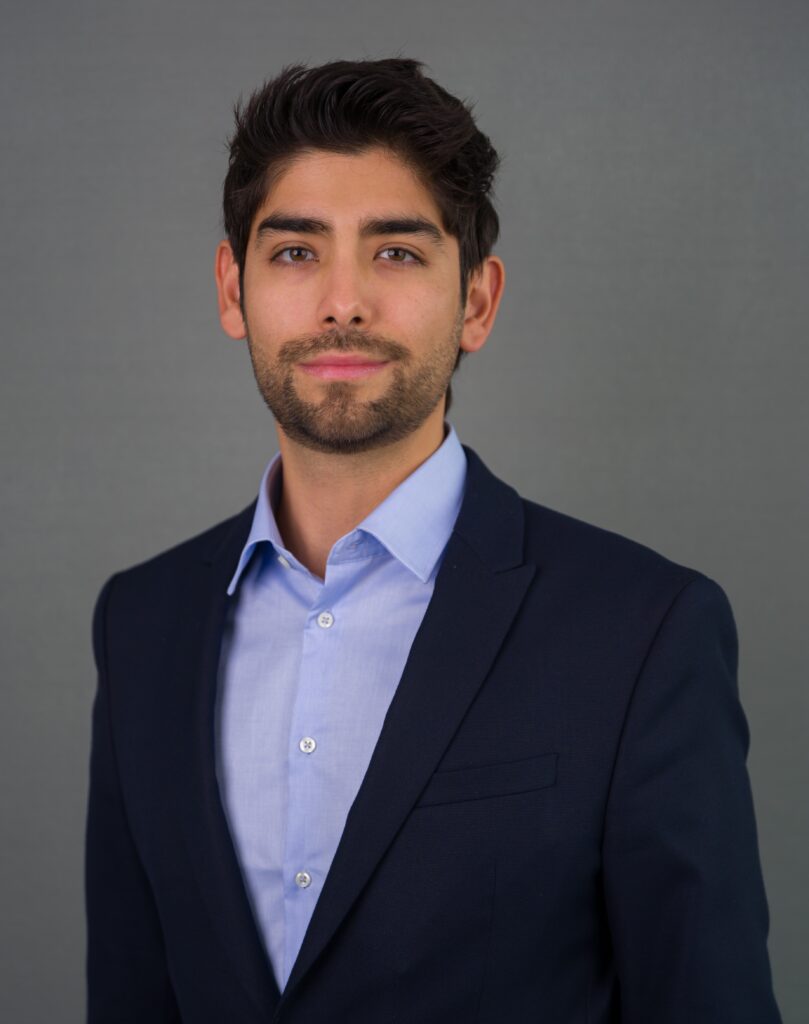
Savoia, Nathan
Nathan is a PhD candidate at ETH Zurich in the Neuromorphic electronics with oxyde (NEO) group. He holds both a bachelor’s (BSc) and a master’s degree in material science from EPFL.
His role in the ViTFOX project involves studying the microstructure of (Hf,Zr)O2 and the use of superlattice hafnia-zirconia to improve the ferroelectric properties.
